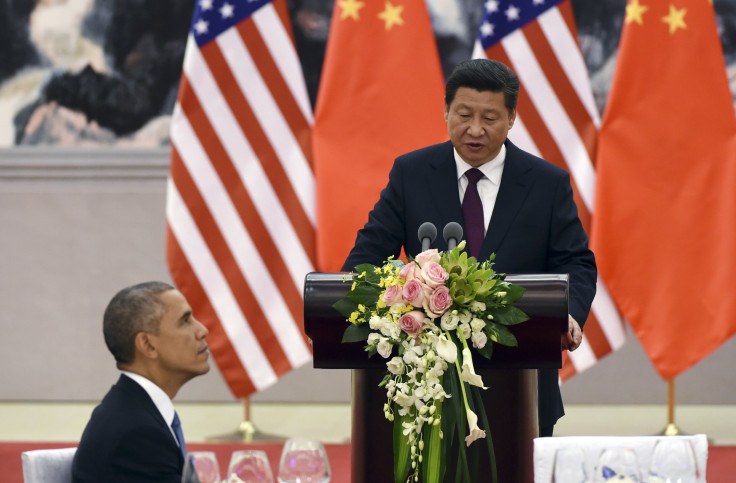NYT Responds To Xi Jinping’s Comments, Says Will Not Alter Coverage To Please China

The New York Times said on Wednesday that the publication will not alter its coverage to please China, which has imposed visa restrictions on journalists of foreign media outlets operating on the mainland. The response followed President Xi Jinping's comments after a reporter from the paper asked him about easing visa restrictions for foreign journalists.
Xi had suggested, during a news conference alongside U.S. President Barack Obama, that foreign journalists are themselves responsible for the visa restrictions imposed on them, and that they should “obey China’s laws and regulations." During the Asia-Pacific Economic Cooperation summit in Beijing on Wednesday, China reportedly agreed to ease visa restrictions for tourists and businesses. According to The Times, Xi initially tried to avoid the question from the journalist Mark Landler, before eventually responding.
“The Times has no intention of altering its coverage to meet the demands of any government -- be it that of China, the United States or any other nation. Nor would any credible news organization,” The Times wrote in response to Xi's comment.
China has repeatedly declined to issue visas for journalists and has also blocked access to the Times’ website for people on the mainland. The steps were taken after the newspaper published a series of news reports on the wealth of Chinese politicians.
"When a car breaks down on the road, perhaps we need to get off the car to see where the problem lies. And when a certain issue is raised as a problem, there must be a reason. In Chinese, we have a saying: ‘The party which has created a problem should be the one to help resolve it.’ So perhaps we should look into the problem to see where the cause lies," Xi reportedly said.
The Times said that Xi’s words were a clear indication to foreign news organizations that they were being “penalized for unfavorable or controversial news coverage.” With his comments, Xi implied that “their troubles are self-inflicted” and could only change if media outlets changed their approach, The Times wrote.
“Demanding that journalists tailor their coverage to suit the state only protects the powerful and those with something to hide. A confident regime that considers itself a world leader should be able to handle truthful examination and criticism.”
Some journalists from the Times also took to Twitter to react to Xi’s comments.
It's confirmed that there is an official policy to discriminate against journalists who cover China critically. http://t.co/HiOCjCW5i6
— Michael Slackman (@meslackman) November 13, 2014"Let he who tied the bell on the tiger take it off," China's Xi Jinping said of NYT visa ban. http://t.co/yUDDRV4s2D
— Joe Kahn (@nycscribe) November 12, 2014The "bell" he referred to is journalism of the kind we and other good news organizations do everywhere else.
— Joe Kahn (@nycscribe) November 12, 2014RT @jansfield: NYT to Xi Jinping: The car's just fine. The problem's the road. http://t.co/YtCk4AYBgr
— Edward Wong (@comradewong) November 13, 2014stupid english-language journos, creating problems for themselves in china by reporting facts. you broke the car!
— Gerry Doyle (@mgerrydoyle) November 12, 2014© Copyright IBTimes 2025. All rights reserved.




















